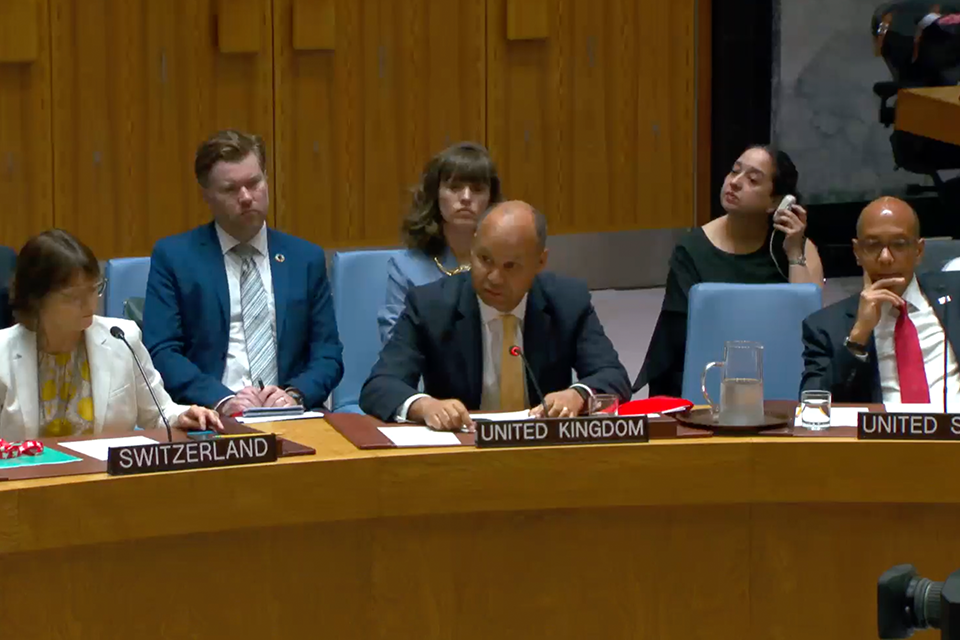The fighting in Sudan must end now: UK statement at the UN Security Council
Statement by Ambassador James Kariuki at the UN Security Council meeting on Sudan.

Thank you, President, let me first congratulate you on assuming the Presidency for the month of May, and thank Malta for their excellent stewardship for the month of April. I also thank Under-Secretary-General Jean-Pierre Lacroix and Special Envoy Hannah Tetteh for your briefings. I welcome the participation of the representatives of Sudan and South Sudan at this meeting.
Let me start, President, by commending UNISFA for its efforts to maintain peace security in Abyei in challenging circumstances, including through collaboration between the Mission, NGOs, local authorities, and communities.
The United Kingdom is deeply concerned by the alarming rise in intercommunal clashes between the Ngok Dinka and Twic Dinka. Violent clashes over the past six months have led to hundreds of civilian casualties and claimed the lives of two peacekeepers. We take this opportunity to express our heartfelt condolences to the families of all victims and to the Governments of Ghana and Pakistan. As well as to the families of two ICRC workers killed on 2 May in South Darfur.
Second, the United Kingdom calls on the Sudanese and South Sudanese authorities to create the necessary conditions for UNISFA to fully implement its protection mandate. We further urge community leaders and influential figures to take steps to de-escalate tensions. The rise in South Sudanese troop deployments in and around Abyei has actively contributed to insecurity and the proliferation of arms in the area.
We call on South Sudan to withdraw its armed forces from southern Abyei immediately, in accordance with their obligations under the Status of Forces Agreement.
We call on Sudan to urgently ensure the safe resupply and freedom of movement of the Joint Border Verification Mechanism. And we further urge enhanced coordination by local authorities to ensure humanitarian assistance reaches the most vulnerable across Abyei.
Third, for real progress to be made in addressing Abyei’s dire humanitarian situation and its unresolved political status, fighting in Sudan must end now.
We reiterate our calls to the Sudanese Armed Forces and Rapid Support Forces to immediately cease hostilities and make way for a political transition.
In closing, President, civilians continue to bear the brunt of the military clashes in Sudan and intercommunal conflict across Abyei and South Sudan. Peacekeepers and humanitarians are risking their lives to try and alleviate suffering. They must not be targets.